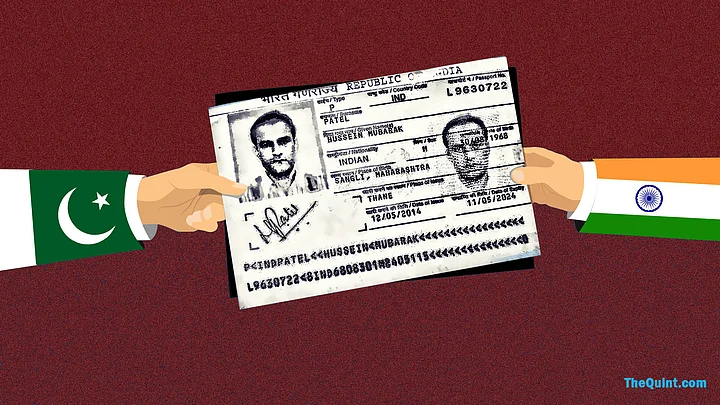This Wednesday, Pakistan lost an important battle at the International Court of Justice (ICJ), but it appears that it is not willing to accept its defeat and Islamabad is busy spinning the verdict in the Kulbushan Jadhav case as a positive development when it is not.
Jadhav, a retired Indian Navy officer, was sentenced to death by the Pakistani military court on charges of “espionage and terrorism” in April 2017. India moved the ICJ in May 2017, alleging Pakistan’s “egregious violation” of the provisions of the Vienna Convention by denying it consular access to Jadhav, while the Pakistanis claimed the Convention guidelines don’t apply to ‘spies’.
However, India maintains that Jadhav was abducted from Iran where he had business interests after retiring from the Navy.
Now the ICJ has granted relief to India as the court said there will be a stay till the time the case and conviction are reviewed, once Jadhav gets diplomatic assistance.
Pakistan’s Spin on the Verdict
Today's ICJ verdict puts Pakistan into a difficult spot given that it will now have to grant consular access to Jadhav and has to offer a retrial perhaps via a civilian court, and following these two developments it will be a lot tougher for Pakistan to control the narrative at home that it has been pushing through.
And yet, if one tunes into Pakistan media, all one can see is a celebration of the verdict from the highest government officials to newscasters to analysts on talk-shows.
Pakistan’s foreign Shah Mehmood Qureshi went as far as to say that this was Pakistan’s “moral triumph and great success,” when it’s clearly not.
The main dispute between Pakistan and India over Jadhav from day one has been the issue of consular access and proper legal representation. Pakistan has been reluctant to give consular access, which is the right of any foreign citizen, and will now have to reconsider that given the ICJ verdict. Also, the so-called legal process Pakistan applied to convict and sentence Jadhav to death involved the Pakistani military courts.
They are known to not follow due process of law and are devoid of any transparency, making it difficult for any legal mind to believe in their independence.
In a statement earlier this year, the International Commission of Jurists said that the military “justice system” is a “glaring surrender” of human rights and fundamental freedoms in Pakistan.
Jadhav & Pakistan’s ‘Foreign Hand’ Narrative
Pakistan has repeatedly tried to use the case of Jadhav to build a case that India is fomenting terrorism in the country through such “spies” but the only proof it has provided for this are poorly edited video “confessions” of Jadhav himself from behind the bars.
Moreover, Pakistan's terror problem is a lot more complicated, given that many of such violent acts are committed by its own citizens, radicalised at local seminaries and mosques, sometimes by groups with linkages to the state itself.
But every time in the recent past Pakistan has had a terror attack, the authorities have tried to blame “the foreign hand” and called Jadhav a proof of that, but failed to provide anything further than that, as witnessed once again at the ICJ.
When Jadhav's "arrest" was initially revealed, the government had promised extensive proof that was going to be shared about how he had committed terror acts but in the end nothing more than videos have surfaced.
The ICJ Lesson for Pakistan
Pakistan must improve and learn from its failure at the international court in Hague and prepare for a tougher battle out in the open in days to come, which will come under a lot more scrutiny.
Of course, even if the military, which is de-facto in-charge of this case allows the case to be moved to the civilian courts, they are also known to have their weaknesses and have been forced to compromise in the past for the so-called “national interest.”
But the international media and community observing this from Pakistan will see through any such manipulations, even if the local media is not allowed to report it.
And if there are hostile elements within and outside Pakistan (and there just might be, as a tit-for-tat for Pakistan's support to militant proxies in the region and at home) that want to destabilise the country, the security agencies must provide irrefutable and compelling evidence to the Pakistani public and the world to prove that, as they had promised in Jhadav's case too.
Unless that does not happen, Pakistan may claim a higher moral ground but the truth of the matter is it is for now grossly violating all international rules, laws and human rights values in his case.
If Pakistan has nothing to hide, it must conduct a fair and transparent trial of Jhadav, and let true and fair justice prevail.
(Taha Siddiqui is an award-winning Pakistani journalist living in exile in Paris since February 2018 and is currently writing a book about Pakistan. He teaches journalism at SciencesPo and runs a digital platform called safenewsrooms.org, which documents censorship in the media. He tweets at @TahaSSiddiqui This is an opinion piece and the views expressed above are the author’s own. The Quint neither endorses nor is responsible for the same.)
